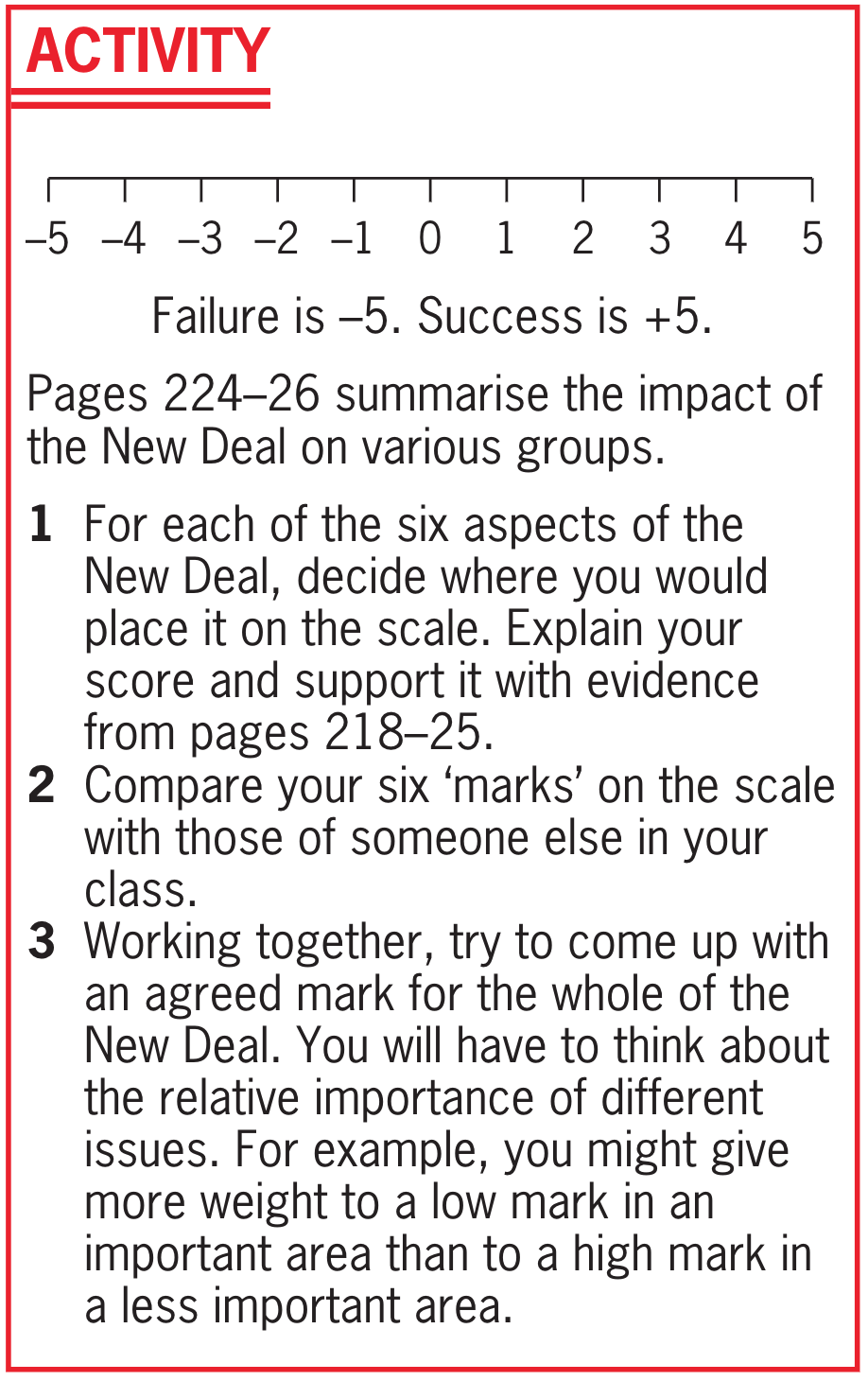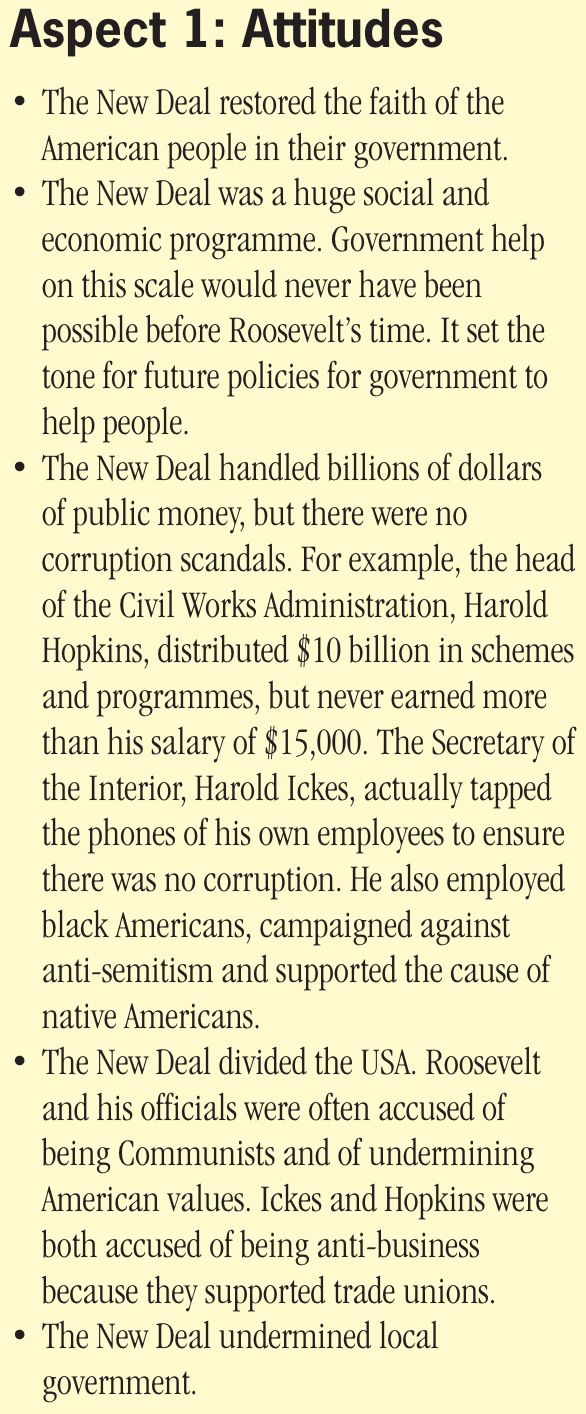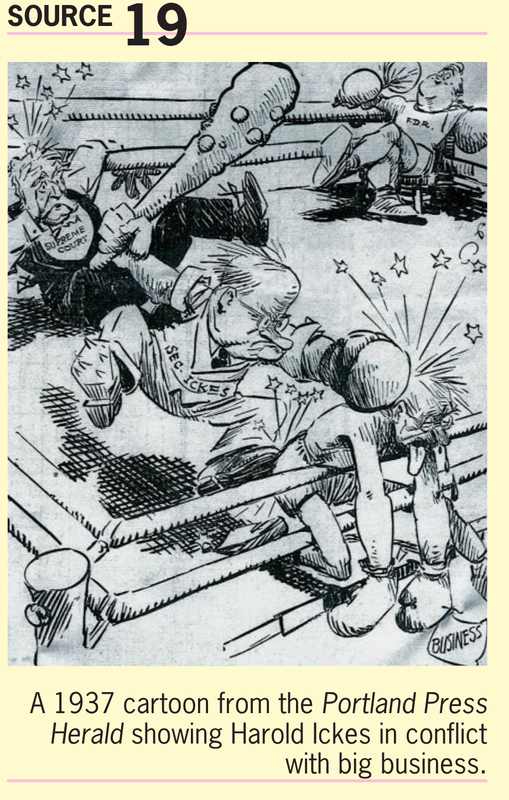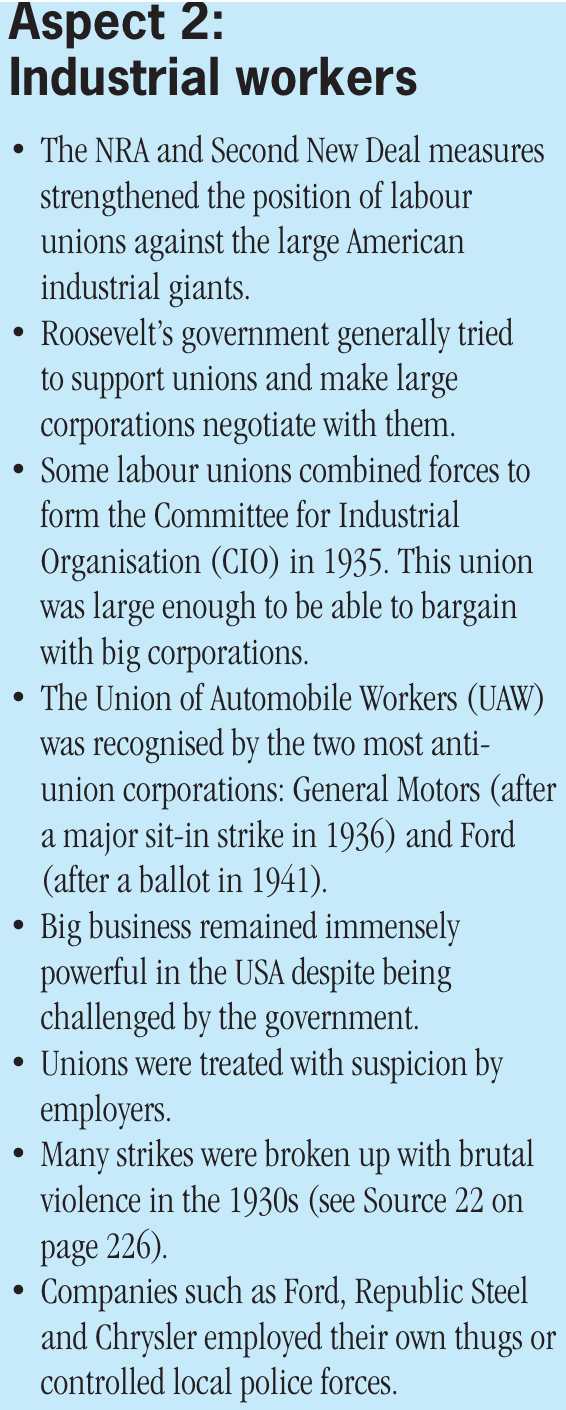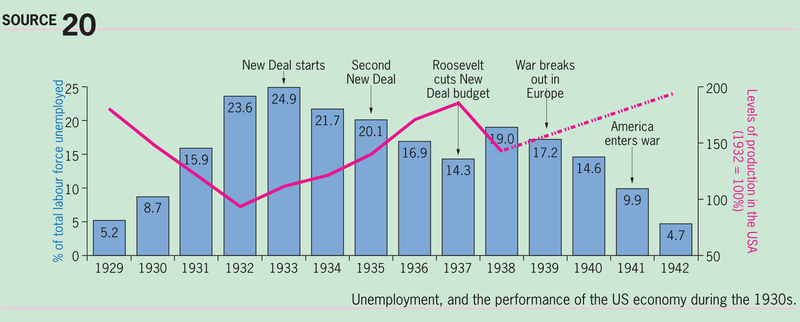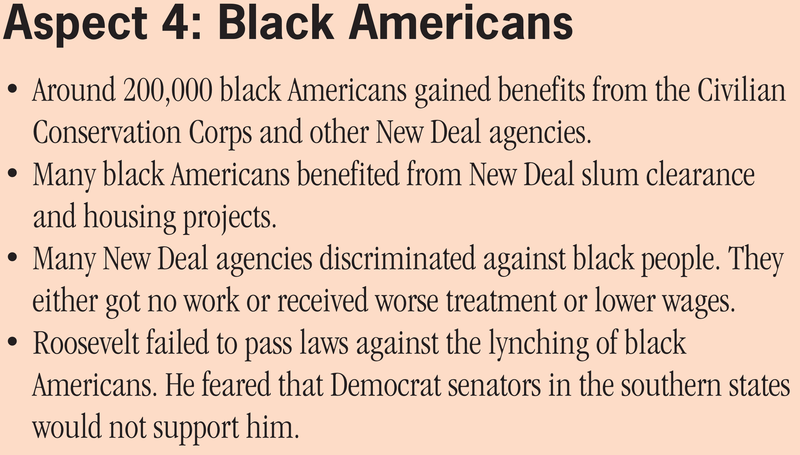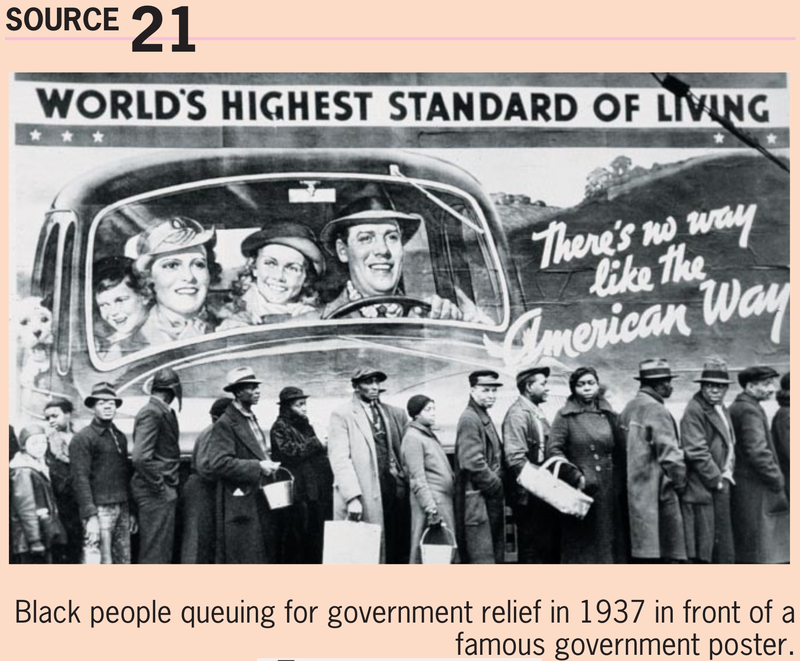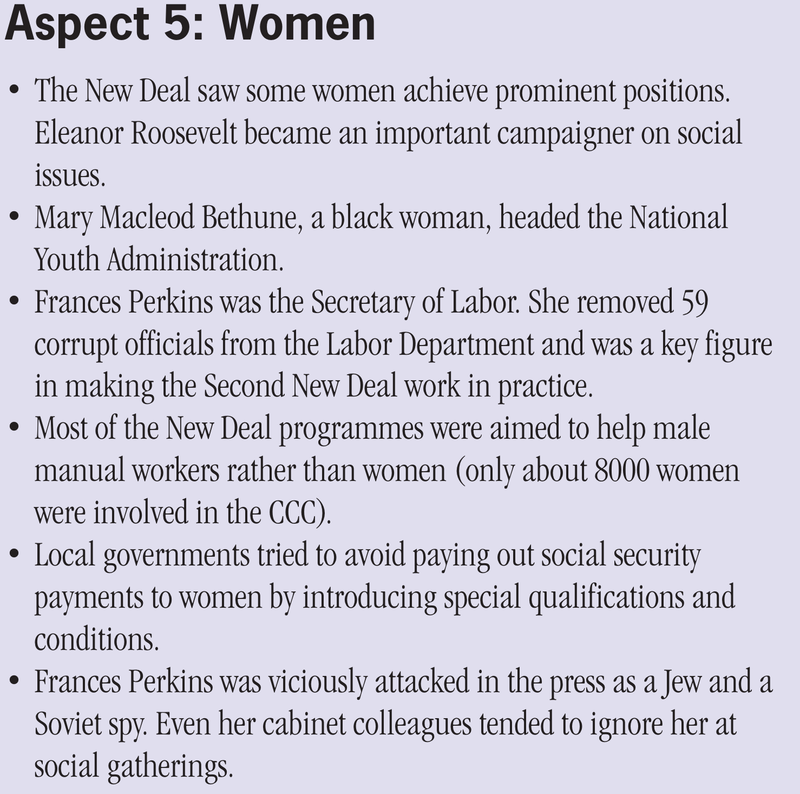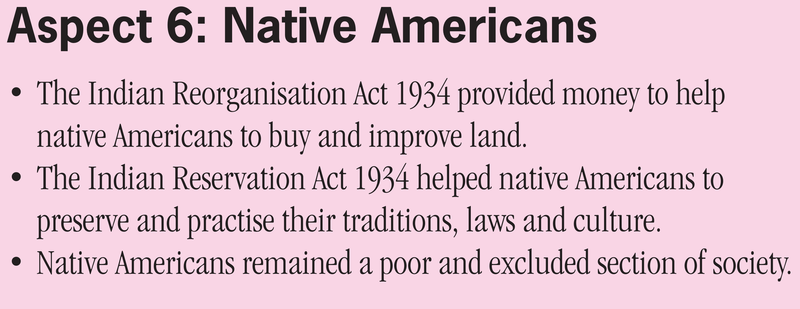Lesson 6 - Judging the New Deal
Opposition to the New Deal
Read textbook 220. We can identify the three groups of people who opposed the New Deal: the left, the right and the Supreme Court. Explain why and how these groups opposed the New Deal.
Opposition to the New Deal
- Left-wing Progressives: Some progressives criticized the New Deal for not going far enough in addressing the economic and social problems of the Great Depression, arguing that it did not do enough to redistribute wealth and to help the poorest Americans.
- Business leaders and conservatives: Many business leaders and conservatives opposed the New Deal, arguing that it was a form of socialism and that it interfered with the free market. They were particularly critical of the National Recovery Administration (NRA) and the Agricultural Adjustment Act (AAA), which they saw as government overreach. Some conservatives also opposed the New Deal's labor and welfare programs, arguing that they would create a "culture of dependency."
- The Supreme Court: The Supreme Court struck down several key components of the New Deal, including the National Recovery Administration (NRA) and the Agricultural Adjustment Act (AAA) on the grounds that they were unconstitutional. The court's conservative majority argued that these programs exceeded the powers of the federal government and infringed on the rights of states and individuals.
Read textbook 220. We can identify the three groups of people who opposed the New Deal: the left, the right and the Supreme Court. Explain why and how these groups opposed the New Deal.
Left |
Right |
Supreme Court |
Huey Long, Dr Francis Townshend, Father Coughlin |
Republicans, Big business, Newspaper owners |
Republicans, Schechter Poultry Corporation. |
Despite these forms of opposition, the New Deal enjoyed wide popular support and was able to push through many of its programs and policies. Some of the opposition groups like business leaders, Supreme court, shifted their stance over time and the New Deal was seen as a success by large number of people
Was the New Deal a success?
The New Deal is widely considered to have been successful in addressing the economic problems caused by the Great Depression. It is credited with providing relief to the unemployed, stimulating economic growth, and promoting financial stability. The New Deal also played a role in creating the social safety net in America, with its programs providing unemployment insurance, old-age pensions, and aid to farmers, among other things.
However, the New Deal was not successful in ending the Great depression, it took a world war to fully end the depression. The New Deal policies helped to reduce the unemployment rate and revive the economy, but the depression persisted until 1940s. The New Deal also faced opposition from some quarters and faced challenges in the courts. Overall, the New Deal is considered a significant and far-reaching set of policies that had a lasting impact on the United States, shaping the modern American welfare state, labor rights, and the economy. The New Deal stablished a Keynesian economic orthodoxy and welfare state that lasted until the Reagan years (1980s)
The New Deal is widely considered to have been successful in addressing the economic problems caused by the Great Depression. It is credited with providing relief to the unemployed, stimulating economic growth, and promoting financial stability. The New Deal also played a role in creating the social safety net in America, with its programs providing unemployment insurance, old-age pensions, and aid to farmers, among other things.
- The New Deal's relief programs provided immediate assistance to millions of Americans who were struggling to make ends meet during the Depression.
- The New Deal's public works projects, such as the Civilian Conservation Corps (CCC) and the Public Works Administration (PWA), put people to work and helped to stimulate economic growth.
- The New Deal's financial reforms, such as the Federal Deposit Insurance Corporation (FDIC), helped to promote stability in the banking system.
- The New Deal's labour policies, such as the National Labor Relations Act (NLRA), helped to improve the rights and conditions of workers.
However, the New Deal was not successful in ending the Great depression, it took a world war to fully end the depression. The New Deal policies helped to reduce the unemployment rate and revive the economy, but the depression persisted until 1940s. The New Deal also faced opposition from some quarters and faced challenges in the courts. Overall, the New Deal is considered a significant and far-reaching set of policies that had a lasting impact on the United States, shaping the modern American welfare state, labor rights, and the economy. The New Deal stablished a Keynesian economic orthodoxy and welfare state that lasted until the Reagan years (1980s)
There are lots of different ways of addressing the question of how successful. The important thing is to be able to provide a balanced account of both successes and failures. Prepare an oral presentation of no more than five minutes that addresses the question 'How successful was the New Deal?'
|
|
Also consider the following: https://www.johndclare.net/America9.htm https://www.bbc.co.uk/bitesize/guides/zcrdcwx/revision/1 |
Extension
|
|

